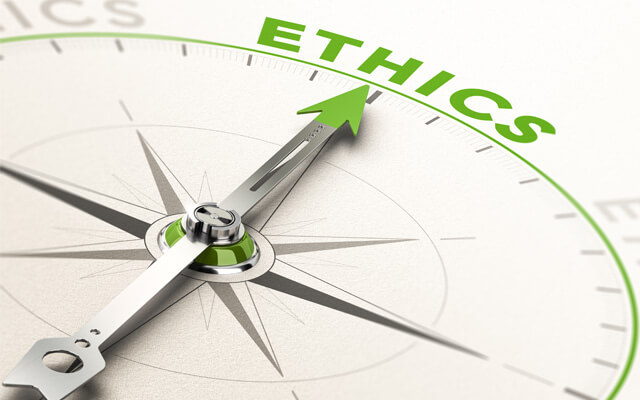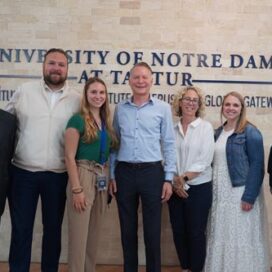On the Front Lines
Published: October 18, 2015 / Author: National Grid & Consolidated Edison, Inc.

We all know that tone at the top is important: without legitimate, committed support from senior management, even the best ethics program will fail.
But if you’re a huge company with multiple locations and operations, how do you spread the message of your values to your most remote employees? How do you tailor the messaging to be relevant to different units with different purposes? And how do you stay aware of what’s happening on the ground in each location?
National Grid and Consolidated Edison, Inc., two of the world’s largest investor-owned energy companies, have implemented a strategy that might be part of the solution: ethics ambassadors programs. Both companies face the challenge of communicating across multiple, geographically diverse sites, all of which have varied operations and different internal cultures. Through their respective ethics ambassadors programs, these organizations are seeing significant success in engaging their employees in a cohesive mission.
National Grid began the Ethics Liaison Network in 2009 after launching their refreshed code of conduct, Always Do the Right Thing. Bill Holzhauer, National Grid’s US Director of Ethics and Compliance, says that this launch presented an opportunity to do something new. He explains, “We wanted to create a culture where people were comfortable raising concerns—a culture of trust. We knew that to do this, we would have to build an environment where the employees understood the why of our ethical standards.” With this goal in mind, National Grid piloted their Ethics Liaison program.
“We wanted to create a culture where people were comfortable raising concerns—a culture of trust. We knew that to do this, we would have to build an environment where the employees understood the why of our ethical standards.”
The role of National Grid Liaisons is to act as resources to their peers, facilitate reporting, and shape corporate ethics and compliance messaging to engage their individual teams. Liaisons receive and disseminate various communications from the Ethics and Compliance Office including a quarterly ethics newsletter, an annual report on their progress, and monthly memos to managers. They conduct programming that includes putting an Ethics Spotlight on employees for exhibiting exceptional ethical behavior and reviewing case studies of scrubbed in-house ethical breaches. Finally, the Liaisons participate in monthly calls to share their progress, challenges, and strategies. They do not fulfill the reporting and investigative functions of the Ethics and Compliance team, but are instead resources to their coworkers and bridges between corporate offices and their units—an ear to the ground for the Ethics and Compliance office. Since its inception, the Ethics Liaison program has multiplied tenfold, becoming an integral part of the ethics program of National Grid.
Like National Grid, Con Edison’s ethics ambassadors program evolved from its challenges: the company’s diversity of geographic locations and site cultures was limiting their ability to propagate their ethics and compliance messages to their employees. After making the choice to separate their ethics and compliance functions in 2012, they piloted the Values in Action program with 15 advisors. Nadine Rivellese, Con Edison’s Director of Business Ethics and Compliance notes that “the desirable characteristics of an Advisor include good influence among peers, strong interpersonal skills, demonstration of integrity, and a good knowledge of the formal and informal organizational communication channels.” The Con Edison approach is similar to National Grid’s: the Advisors act as a focus group for the ethical issues in the company, commune regularly to share insights and strategies, and serve as positive resources for employees on integrity-related topics. Like the Ethics Liaisons, the VIA Advisors are responsible for programming and support, but they do not supplant the Business Ethics and Compliance function.
Both National Grid and Con Edison have seen positive effects from their programs. The Directors report that they are better apprised of the ethical climate of their respective organizations, and both programs have been lauded internally. In 2014, National Grid’s Ethics Liaisons were recognized by the company’s organization-wide Chairman’s Award for Excellence, and the President and Chief Operating Officer of Con Edison stated in a recent brief to employees, “Our goal as an organization is to foster a self-correcting culture where issues are raised and addressed at the department level by simply talking to each other. The VIA Advisor network is a resource to help us get there.”
So, how can you do this at your organization? First, assess your structure to decide how many ambassadors you need. Should you institute a ratio of 1 ambassador to every 200 employees? Or are your locations so dispersed that you need an ambassador at every location? Next, have leadership nominate ambassadors based on demonstrated integrity in their performance and their relationships, leadership ability, and communication skills. Finally, ensure that managers are prepared to support their ambassadors. Both Rivellese and Holzhauer stress that in a successful program, managers understand the ambassador role, give ambassadors time to fulfill their larger set of duties, and consider their employees’ additional efforts when evaluating their performance.
Originally published by at ethicalleadership.nd.edu on October 18, 2015.
Related Stories




